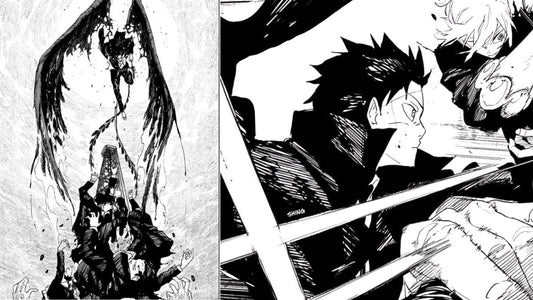
Jiji's Unspoken Tale: The Divergence in Studio Ghibli's Kiki's Delivery Service Adaptation
Jared JohnsonShare
Studio Ghibli's Kiki’s Delivery Service: A Tale of Growth and Independence
Studio Ghibli's adaptation of Kiki’s Delivery Service brings to life a charming story of a young witch embarking on a journey towards independence. Fans of the classic 1989 film will fondly remember Kiki and her endearing cat companion, Jiji, who plays a significant role throughout the movie. However, many viewers may be surprised to learn that Jiji’s storyline took a different turn from the original source material, leading to mixed opinions about its execution in the film. Let us delve into why Jiji’s ending diverges from the book and how this impacts the overall story.
Jiji's Role in Kiki’s Journey
As Kiki sets out on her path to independence, Jiji assumes the role of her familiar, a traditional magical companion in witch lore tasked with guiding and providing emotional support. Throughout the first half of the film, Jiji accompanies Kiki, adding moments of charm and humor as they establish a delivery service in the seaside town of Koriko. Jiji’s constant presence offers Kiki comfort and serves as a bridge between her and the magical world she is trying to navigate in her coming-of-age tale.
The Turning Point: Kiki Loses Her Magic
A pivotal moment in the movie occurs when Kiki loses her magical abilities, including her ability to communicate with Jiji. This transformation signifies Kiki's personal struggle with self-doubt and growing pains as she copes with the pressures of her new life. In this moment of vulnerability, Jiji’s inability to share his insightful commentary only exacerbates Kiki's feelings of isolation. Interestingly, during this period, Jiji develops a fondness for a local white cat, symbolizing his own subtle shift away from Kiki.
Divergent Endings: Film vs. Source Material
In the Studio Ghibli version, Jiji never regains his ability to speak by the film's conclusion in the original Japanese version, symbolizing Kiki's transition into maturity and self-reliance. Director Hayao Miyazaki explained this change as reflecting Kiki’s growth into adulthood, no longer needing a familiar's guidance. However, the dubbed English version adds a line indicating Jiji's voice returns, aligning with the more optimistic themes often favored in Western adaptations.
The book series on which the movie is based paints a different picture. In Eiko Kadono’s work, Jiji maintains his ability to communicate with Kiki throughout their adventures. This decision adheres more closely to the traditional portrayal of witches and their familiars in fiction, where companionship remains unwavering regardless of personal growth or transformation.
The Impact on the Story and Worldbuilding
While Miyazaki’s adaptation of Kiki’s Delivery Service has become a beloved classic, the change to Jiji’s character introduces complexities. Some supporters argue that Jiji’s silence underscores Kiki’s independence and maturity, while others claim that it disrupts the film's established worldbuilding norms. Familiars are typically depicted as lifelong companions, growing alongside their witches rather than being cast aside merely because a witch has matured.
This divergence from the source material creates a standalone narrative for the Ghibli film, encapsulating Kiki’s journey in a manner reflective of Miyazaki’s philosophical vision. Nonetheless, it has opened discussions about the importance of faithful adaptations versus creative reinterpretations and whether such changes enhance or diminish the storytelling experience.
Conclusion: A Story of Growth and Independence
Kiki’s Delivery Service remains a poignant tale of a young witch finding her place in the world. Whether one prefers the film's interpretation or the original literary version, both narratives provide valuable insights into growing up and learning to rely on oneself. Jiji’s role, though different in each medium, continues to captivate audiences, serving as a reminder of the magical bonds that accompany life’s most transformative journeys.



